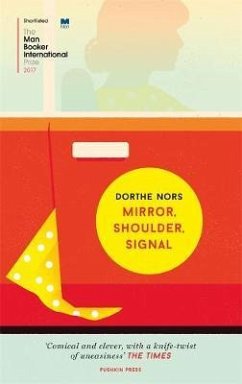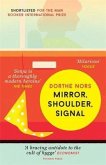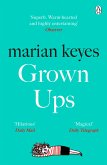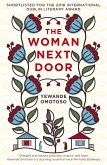Sonja, a literary translator for Swedish crime novels, is over forty, so she decides that it is finally time to get her driving license. In Copenhagen's streets she is not only fighting with the driving school's car and the other cars, cyclists and pedestrians around her, but also with her
instructor Jytte who just does not let her change gears and yells at her all the time. When Sonja complains…mehrSonja, a literary translator for Swedish crime novels, is over forty, so she decides that it is finally time to get her driving license. In Copenhagen's streets she is not only fighting with the driving school's car and the other cars, cyclists and pedestrians around her, but also with her instructor Jytte who just does not let her change gears and yells at her all the time. When Sonja complains with the driving school's boss Folke, she is not sure if with another instructor, she will be able to learn how to move smoothly in the traffic. However, it is not only the failure in driving that worries the translator. She struggles with her current piece of work and especially with her family relationships. Her sister as well as her parents still live in the countryside where she grew up and with whom she hardly has any contact.
Dorthe Nors novel which is nominated for the 2017 International Man Booker Prize is an interesting piece of art. First of all, I found the central topic quite innovative, I cannot recollect ever having read a novel in which learning to drive a car is the focus of the plot. Yet, this is only on the surface the central aspect, Sonja's driving lessons are much more marked by the complicated relationships and conversations by the characters. Her first instructor, Jytte, is an outstanding person. She is not only outgoing and loud in every aspect, but also not very sensitive with her students. The encounter with a very reflective and intellectual woman who, additionally, is also a bit older and full of insecurity, can only lead to conflict which the two women avoid openly. The second instructor, Folke, is much more receptive to Sonja's emotional needs than he seems at first.
On the other hand, we have the complicated communication between the sisters which is mainly avoided or unsuccessful. Kate does not want to talk to Sonja, her husband repeatedly has to deny her being at home in order not to be confronted with the sister and old conflicts which have never been solved. Dorthe Nors has found an interesting picture to illustrate their relationship: “If Sonja and Kate were apples, you’d say that they’d fallen on two different sides of the three” (pos. 852). They come from the same tree, but then they lose sight of each other.
Sonja is symbolic for the modern inhabitant of a major city. She has many people around herself, her life is full of different things she can do in town, but underlying it all is a loneliness which sometimes surfaces and makes them aware of the poor quality of the many encounters they have:
“In Copenhagen you could have something else, and her first years were a success. She learned the city’s movements, its dialog, its form. But bit by bit it stopped making sense.” (pos. 1526)
Yet, life in the countryside is also not portrayed as the perfect solution. Much more the question is raised what is important in life and should it be more than just the fulfilment of basic needs.
Even though there is a certain melancholy which marks the novel, there are also funny situations and hilarious dialogues full of absurdity. Life is not only black and white, and sometimes you struggle with it, but as soon as you have found your place and have decided on what is important for you, you can find you balance and go on.
Regarding the nomination for the International Man Booker prize, I found others nominees I have read much more demanding, e.g. Mathias Enard’s “Compass” or David Grossman’s “A Horse Walks Into a Bar”. However, for such a renowned prize, Dorthe Nors’ novel is wonderful to read on different levels.








